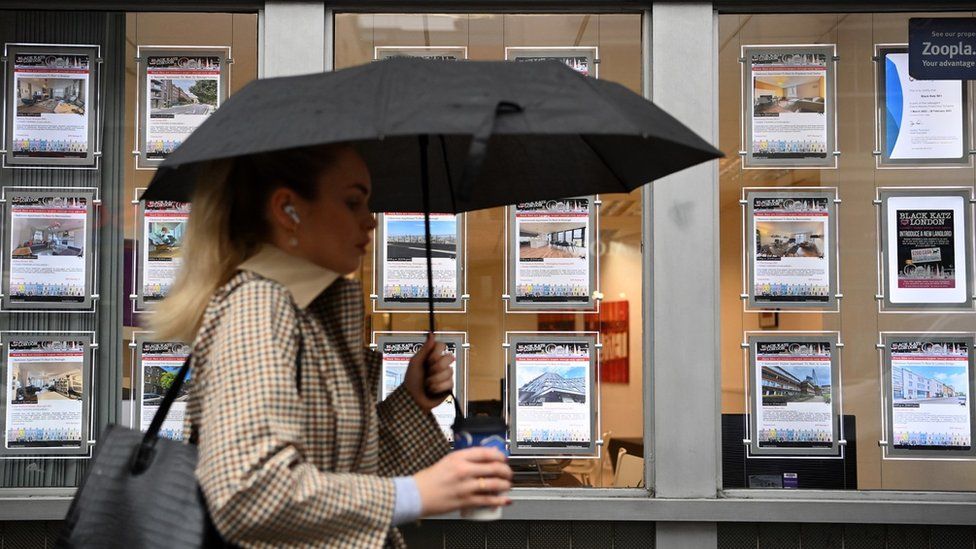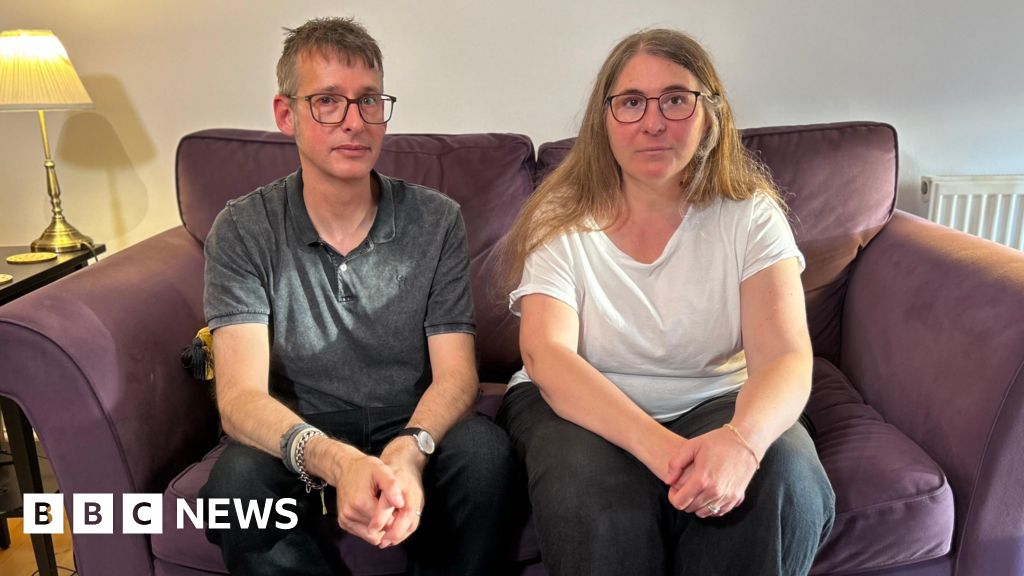ARTICLE AD BOX
 Image source, Andy Rain/EPA-EFE/REX/Shutterstock
Image source, Andy Rain/EPA-EFE/REX/Shutterstock
Rising interest rates means people looking to remortgage their homes will pay an average £2,900 a year more from 2024, a think tank has said.
The Resolution Foundation predicts the average two-year fixed rate deal will hit 6.25% later this year, leaving the UK in a "mortgage crunch".
Around 800,000 people are expected to remortgage next year, the group said.
Borrowers are already facing big increases after lenders hiked rates over the past fortnight.
The Bank of England is expected to raise interest rates again next week.
Earlier this week, Chancellor Jeremy Hunt said the Bank had "no alternative" but to lift rates in its attempt to tackle inflation and curb rising prices.
The Bank of England's base rate is currently at 4.5%, but the Resolution Foundation says this is expected to peak at nearly 6% in mid-2024.
Those expectations have quickly filtered through into the mortgage market - with deals being withdrawn or replaced by ones with higher rates.
On Friday, financial data firm Moneyfacts said the average two-year fixed-rate loan for homeowners stood at 5.98%, compared with 3.14% a year earlier.
The Resolution Foundation does not expect the average two-year deal to fall below 4.5% until the end of 2027. This would "significantly increase the scale of the mortgage crunch currently unfolding", it said.
As a whole, annual repayments are on track to be £15.8bn a year higher by 2026 compared with prior to when the Bank started its rate-raising cycle in December 2021.
'Living standards hit'`
The think tank said about three-fifths of the increase in annual mortgage payments was yet to be passed on to households, as borrowers move off existing fixed-rate deals and on to new ones.
This was expected to deliver a "rolling living standards hit" to millions of households in the run-in to the next general election, it said.
In December last year, the Bank of England said about four million UK households would face higher mortgage payments in 2023, with the average monthly bill rising by £250.
But that included households on tracker and variable rate mortgages, and the prediction was made at a time when the Bank of England's base rate was lower.
Comparing the current situation with 1989, when interest rates reached almost 15%, the Resolution Foundation predicted this year's rate rises would increase the cost of a typical mortgage by 3% of a typical household income, outstripping the 2.4% increase seen then.
But the organisation said the current mortgage crunch was less widespread than in previous shocks, which was "better news for the government".
In 1989, although inflation was lower at 5.5%, nearly 40% of households owned a home with a mortgage and were therefore exposed to rising costs.
Now, with more older people owning their homes outright and fewer young people owning property at all, the share of households with a mortgage has fallen below 30%.
The Resolution Foundation's Simon Pittaway said: "Market expectations that interest rates are going to rise even higher, and stay higher for longer, are having a major effect on the mortgage market.
"Of course, market expectations can be wrong, and rate rises may not turn out to be as bad as feared."
Around 7.5 million people with a mortgage are expected to see their repayments rise by 2026, the think tank said.
What happens if I miss a mortgage payment?
- A shortfall equivalent to two or more months' repayments means you are officially in arrears
- Your lender must then treat you fairly by considering any requests about changing how you pay, perhaps with lower repayments for a short period
- Any arrangement you come to will be reflected on your credit file - affecting your ability to borrow money in the future

 2 years ago
27
2 years ago
27








 English (US) ·
English (US) ·